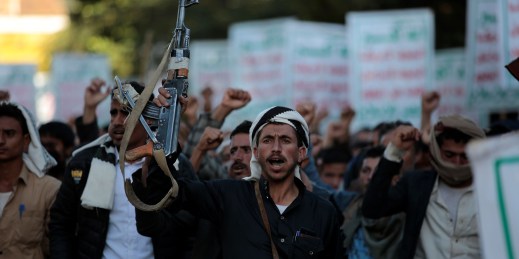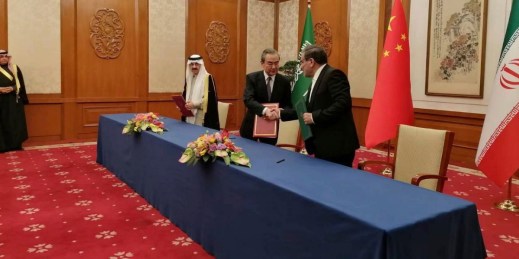
At the height of enthusiasm for globalization, many policymakers convinced themselves that the benefits of a more connected world would encourage potential spoilers to accept a stable international order. The same complacency was visible in the recent shock over attacks by Yemen’s Houthi movement on merchant shipping in the Red Sea.





